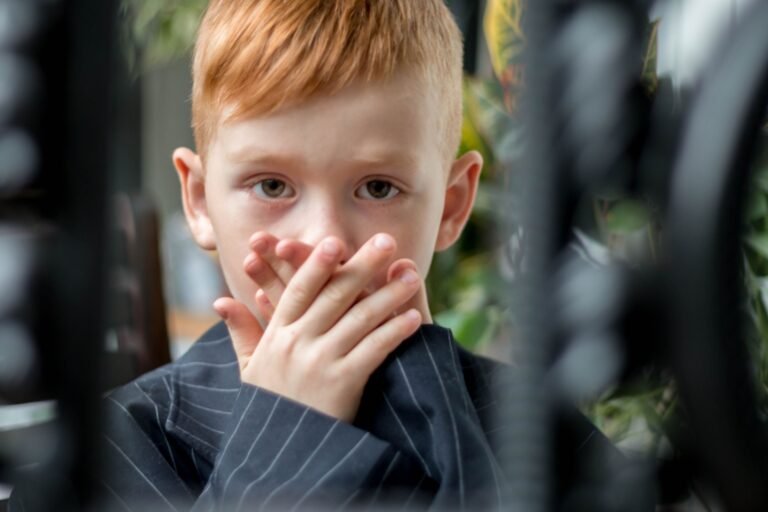Selective Mutism is a complex childhood anxiety disorder that can leave parents feeling confused and worried. When a child can speak comfortably in certain situations but remains silent in others, it’s not just shyness; it could be Selective Mutism. At Positive Kids, we’re dedicated to helping parents understand and support their children through this unique challenge.
What is Selective Mutism?
Selective Mutism is a condition where a child is unable to speak in certain social settings, despite having the ability to communicate in others. For instance, a child might speak freely at home but remain silent at school or in public settings. This selective silence often stems from anxiety and is not a willful choice to remain quiet.
Symptoms and Signs of Selective Mutism
Children with Selective Mutism often exhibit:
- Consistent silence in specific situations, like school or public gatherings, where they are expected to speak.
- Difficulty making eye contact or responding to questions when they’re outside their comfort zone.
- A tendency to freeze or avoid situations where they might be expected to talk.
- Physical symptoms of anxiety, like sweating or trembling, when faced with speaking.
Identifying these signs early is crucial, as untreated Selective Mutism can interfere with a child’s social development and academic progress.
Causes and Risk Factors
Selective Mutism is often linked to a combination of factors, including:
- Anxiety Disorders: Many children with Selective Mutism also experience social anxiety or other forms of anxiety.
- Family History: Children with a family history of anxiety disorders are more likely to develop Selective Mutism.
- Environmental Factors: Changes in environment, such as starting a new school or moving to a new city, can trigger symptoms.
Understanding the root causes can help parents and therapists tailor treatments that address both the symptoms and the underlying anxiety.
How Selective Mutism Impacts a Child’s Life
Selective Mutism can significantly impact a child’s ability to participate in social and academic activities:
- Social Challenges: Children may struggle to form friendships or participate in group activities, which can lead to feelings of isolation.
- Academic Difficulties: In school settings, children might be unable to ask for help, answer questions, or engage in class discussions, affecting their learning and confidence.
- Emotional Strain: The condition can cause a cycle of anxiety and avoidance, reinforcing the child’s fear of speaking in certain situations.
Treatment and Therapy Options
At Positive Kids, we believe that overcoming Selective Mutism is possible with the right support and treatment. Some effective approaches include:
- Cognitive Behavioral Therapy (CBT): This evidence-based approach helps children recognize and change the thoughts and behaviors that contribute to their silence.
- Exposure Therapy: Gradual, supportive exposure to speaking situations helps children build confidence and reduces their anxiety over time.
- Social Skills Training: Teaching children how to communicate effectively and assertively can make them feel more comfortable in social interactions.
- Psychoeducation: Educating both the child and their family about Selective Mutism helps everyone understand the condition and feel more empowered to address it.
How Positive Kids Can Help
At Positive Kids, we specialize in treating children with anxiety disorders, including Selective Mutism. Our child psychologists use personalized therapy plans that focus on building resilience, emotional intelligence, and social skills. By providing a safe, supportive environment, we help children face their fears and gain the confidence to express themselves fully.
We Care About Your Child’s Well-being
We know that Selective Mutism can be incredibly challenging for both children and parents. With the right guidance, children can overcome these obstacles and learn to thrive. If you’re concerned about your child’s ability to communicate in certain situations, call us today to discover how our expert team at Positive Kids can help make a difference.

